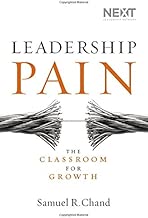 Note: This is part of the “Cutting Room Floor” section of my blog. In this case, I thought it would be helpful to write out a number of the passages shared in the sermon. Hope it helps you reflect on the great truths of Acts 26.
Note: This is part of the “Cutting Room Floor” section of my blog. In this case, I thought it would be helpful to write out a number of the passages shared in the sermon. Hope it helps you reflect on the great truths of Acts 26.
There are many expressions of God at work in Acts 26 as Paul addresses Agrippa, Bernice and Festus. This occurs on three levels — Jesus as the fulfillment of the Old Testament Scriptures, the gospel spreading to Jews and Gentiles, and Paul’s role as he testifies to the gospel. It’s hard to cover all of this in a sermon, so here are some important passages to note.
Paul claimed that he said “nothing but what the prophets and Moses said would come to pass: that the Christ must suffer and that, by being the first to rise from the dead, he would proclaim light both to our people and to the Gentiles” (v. 22-23). This phrase is similar to what Jesus explained to the disciples in Luke 24 —
44 Then he said to them, “These are my words that I spoke to you while I was still with you, that everything written about me in the Law of Moses and the Prophets and the Psalms must be fulfilled.” 45 Then he opened their minds to understand the Scriptures, 46 and said to them, “Thus it is written, that the Christ should suffer and on the third day rise from the dead, 47 and that repentance for the forgiveness of sins should be proclaimed in his name to all nations, beginning from Jerusalem. 48 You are witnesses of these things.
As Jesus explained and Paul taught, the Old Testament Scripture was fulfilled in Jesus. He is the seed of woman in Genesis 3 that would crush the head of the serpent. He is the descendant of David that will reign on the throne forever. He is the suffering servant of Isaiah by whose stripes we can be healed. Israel was anticipating a conquering Messiah, but Jesus explained the Old Testament — the Christ must suffer, rise again, and proclaim the message of forgiveness to all nations.
Acts 26 reveals God at work. From the Garden of Eden, he revealed his plan that a Messiah would suffer, rise again, and good news would be proclaimed. God is at work fulfilling what he promised.
God is also at work in the proclamation of the good news of Jesus to the nations. In Acts 26, Paul asserts that Jesus would “proclaim light both to our people and to the Gentiles.” This reminds Luke’s readers of a prophetic word given at the beginning of Luke’s Gospel, by Simeon (starting in Luke 2:29):
“Lord, now you are letting your servant depart in peace,
according to your word;
30 for my eyes have seen your salvation
31 that you have prepared in the presence of all peoples,
32 a light for revelation to the Gentiles,
and for glory to your people Israel.”
It was said of baby Jesus that he would be a light of revelation to the Gentiles and the glory of Israel. The light of the gospel would be proclaimed to Gentiles and Jews. The prophetic word spoken to Jesus and referenced by Paul has deeper roots, however. We also read similar words in Isaiah 49:
6 he says:
“It is too light a thing that you should be my servant
to raise up the tribes of Jacob
and to bring back the preserved of Israel;
I will make you as a light for the nations,
that my salvation may reach to the end of the earth.”
The promised Servant in Isaiah, referring to Jesus, was to be a light for the nations, that salvation would reach the end of the earth. In other words, when Paul spoke of the Christ proclaiming light to the Gentiles and the Jews, he demonstrated God’s plan in action. The God who prophesied through Isaiah and Simeon that the light is for the nations (not just Israel) is now bringing his plan to fruition. The Kingdom of God is opened in Christ to all who will believe.
God is at work! Jesus is the Messiah, fulfilling Old Testament Scriptures. The gospel is being proclaimed to Gentiles and Jews, as was foretold by prophets. God is also at work in the life of Paul.
Paul’s argument throughout the sermon maintains he was acting in obedience to God, not in opposition to God. In his words, “I was not disobedient to the heavenly vision…” (v. 19). God was at work in the life of Paul, fulfilling his purposes in his life. When Paul encountered Jesus on the road to Damascus, we read a prophecy given to Ananias concerning Paul (Acts 9):
15 But the Lord said to him, “Go, for he is a chosen instrument of mine to carry my name before the Gentiles and kings and the children of Israel. 16 For I will show him how much he must suffer for the sake of my name.”
This was God’s plan for his life — that he would carry the gospel to Gentiles, even testify before kings of the grace of God. And in Acts 26, we see God at work! Paul there stands before King Agrippa and Festus, the Roman governor. The plan God had for Paul came to fruition as he defended himself before royalty.
Another interesting note about God at work in Paul’s life is found in Acts 13. Here, he is speaking in Antioch Pisidia, explaining to the Jewish listeners why he proclaims the gospel to the Gentiles. In doing so, he applied Isaiah 49:6 to himself:
46 And Paul and Barnabas spoke out boldly, saying, “It was necessary that the word of God be spoken first to you. Since you thrust it aside and judge yourselves unworthy of eternal life, behold, we are turning to the Gentiles. 47 For so the Lord has commanded us, saying,
“‘I have made you a light for the Gentiles,
that you may bring salvation to the ends of the earth.’”
Paul continues the work of the risen Lord Jesus to proclaim light to the Gentiles and the Jews — that salvation may come to the ends of the earth. God is at work! Jesus has come in fulfillment of the Scriptures, the gospel is proclaimed to the nations (both Jews and Gentiles) in accordance with prophecy, and Paul is joining God’s work through his obedience to God’s plan for him — standing before Gentiles, Jews, and kings to proclaim the gospel of grace.
God is at work in Acts 26! The application for today is that God is still at work. He still longs for people to know him through faith in Jesus. But how will people hear this good news? Through Christ followers who join God’s work by testifying of what God has done. When we share the story of the gospel, we join God in his work to redeem people. We work in obedience to God, not in opposition to him.
The word is clear — Jesus came as Messiah in fulfillment of Scripture, prophecy is fulfilled as the light of the good news of Jesus shines to all nations, and God does this work through people who join him in his work to draw people to himself through Christ.





 Note: This is part of the “Cutting Room Floor” section of my blog. In this case, I thought it would be helpful to write out a number of the passages shared in the sermon. Hope it helps you reflect on the great truths of Acts 26.
Note: This is part of the “Cutting Room Floor” section of my blog. In this case, I thought it would be helpful to write out a number of the passages shared in the sermon. Hope it helps you reflect on the great truths of Acts 26. “Help me to be all prayer…”
“Help me to be all prayer…”
 I found Santa Claus in the Bible!
I found Santa Claus in the Bible! Sometimes, I just need to break the routine. Do something unusual. Gain a new perspective. That can be especially true at Christmas…and I love Christmas! I turn on the Christmas music early. I love Elf. And It’s a Wonderful Life. And The Nativity Story. I use a real tree…and an artificial tree. Get the point? I enjoy Christmas!
Sometimes, I just need to break the routine. Do something unusual. Gain a new perspective. That can be especially true at Christmas…and I love Christmas! I turn on the Christmas music early. I love Elf. And It’s a Wonderful Life. And The Nativity Story. I use a real tree…and an artificial tree. Get the point? I enjoy Christmas! Preaching through Acts is an exciting journey! One of the most significant stories in Acts is the story of Saul/Paul’s conversion in Acts 9. It’s told three times in the book of Acts. Some questions arise out of a comparison/contrast of the three accounts, mainly regarding what the other men with Paul experienced. I tend to agree with Witherington’s conclusion that they all saw something and heard something, but not to the full extent of Paul. They saw brightness, but not the blinding glory of the risen Lord Jesus. They heard something, but not the clear, distinguishable voice of Jesus.
Preaching through Acts is an exciting journey! One of the most significant stories in Acts is the story of Saul/Paul’s conversion in Acts 9. It’s told three times in the book of Acts. Some questions arise out of a comparison/contrast of the three accounts, mainly regarding what the other men with Paul experienced. I tend to agree with Witherington’s conclusion that they all saw something and heard something, but not to the full extent of Paul. They saw brightness, but not the blinding glory of the risen Lord Jesus. They heard something, but not the clear, distinguishable voice of Jesus. Acts 8 introduces us to one of the more colorful and confusing characters in the New Testament: Simon the Magician. We would be better off thinking of him as a sorcerer in our vernacular, his was a dark magic, probably demonic. He performed works of power that amazed people in Samaria. They even attributed divinity to him: “This man is the power of God that is called Great.” People saw his works of magic and were amazed. He made himself to be someone great, performed works of magic (sorcery), and people paid attention to him. They listened carefully to what he had to say.
Acts 8 introduces us to one of the more colorful and confusing characters in the New Testament: Simon the Magician. We would be better off thinking of him as a sorcerer in our vernacular, his was a dark magic, probably demonic. He performed works of power that amazed people in Samaria. They even attributed divinity to him: “This man is the power of God that is called Great.” People saw his works of magic and were amazed. He made himself to be someone great, performed works of magic (sorcery), and people paid attention to him. They listened carefully to what he had to say. I was 10. It was 1977. Star Wars played at the drive in. Atari was born. Elvis died. I played with my brother and sister. I fought with my brother and sister. We all rode bikes, played outside with neighborhood kids, took family vacations, and hiked Fall Creek Falls. We cheered for the Vols. We had Christmas in Tennessee and Thanksgiving in Alabama. I was usually in church, school, or playing basketball. I learned to love Jesus and shoot left-handed lay-ups. I had a great family and a fun childhood. It was 1977. I was 10.
I was 10. It was 1977. Star Wars played at the drive in. Atari was born. Elvis died. I played with my brother and sister. I fought with my brother and sister. We all rode bikes, played outside with neighborhood kids, took family vacations, and hiked Fall Creek Falls. We cheered for the Vols. We had Christmas in Tennessee and Thanksgiving in Alabama. I was usually in church, school, or playing basketball. I learned to love Jesus and shoot left-handed lay-ups. I had a great family and a fun childhood. It was 1977. I was 10.